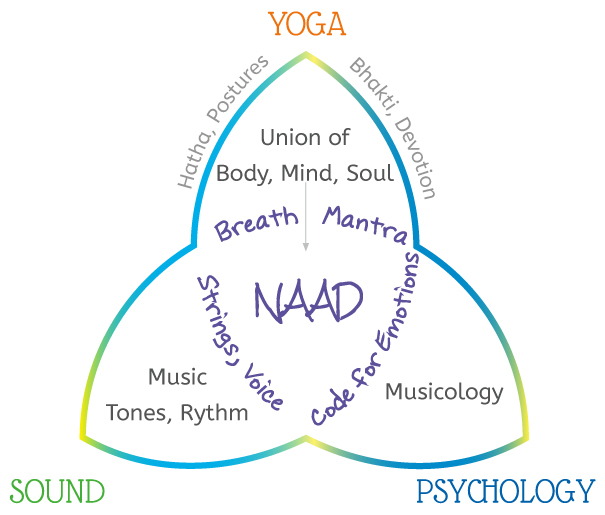
Naad is a Sanskrit word that refers to sound or vibration. It is believed to be the basic building block of the universe, and is considered to be a powerful tool for spiritual development in many Indian spiritual traditions.
"Anhadnad" is a term used in some spiritual traditions, particularly in Sikhism, to refer to the "unstruck sound" or the "unending vibration" that is believed to exist in the cosmos and within the human body. According to this belief, the sound of Anhadnad is not produced by any physical source or instrument, but is instead an eternal, divine vibration that exists within all living beings and the universe itself. It is said to be the primordial sound that pervades all creation and is a manifestation of the divine.
In some spiritual practices, meditating on the sound of Anhadnad is believed to help quiet the mind and lead to a deeper awareness of one's true nature and connection to the divine. By focusing on the inner sound, one can achieve a state of deep concentration and inner stillness, which can help to purify the mind, reduce distractions, and increase spiritual awareness.
In the Sikh tradition, meditating on the sound of Anhadnad is seen as a means to attain spiritual enlightenment or "mukti" - liberation from the cycle of birth and death. By merging one's consciousness with the divine vibration of Anhadnad, one can transcend the limitations of the physical world and experience the ultimate reality of the divine.
The concept of Anhadnad is seen as a powerful tool for spiritual growth and transformation in some spiritual traditions, as it allows practitioners to connect with the divine within themselves and in the world around them.
Simillar Blogs

Emotional Illiteracy

What is Yoga

Shanti Mantra

Spiritual Awakening

Pranayama Mantra

